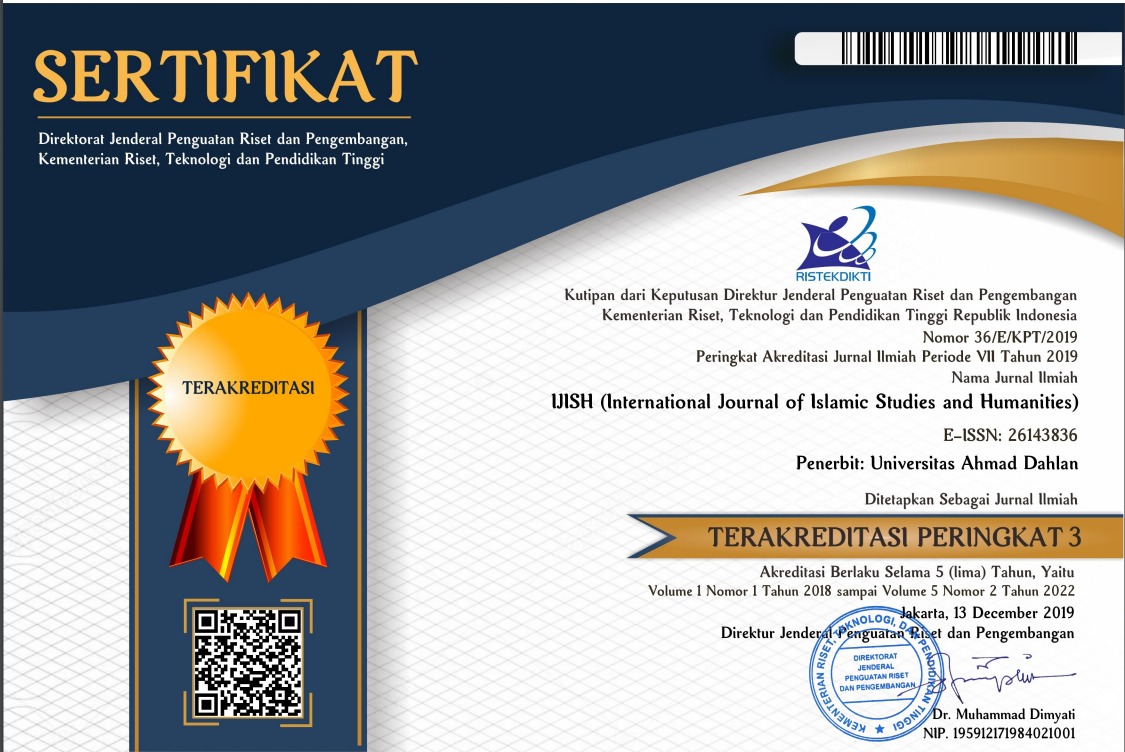The Cross Ethnic Relationships in Strengthening Social Cohesion in Malaysia
DOI:
https://doi.org/10.26555/ijish.v2i2.911Keywords:
Cross ethnic relationships, social cohesion, individual, community institutionalAbstract
The foundation of developing a nation in Malaysia is based on the integration by which each ethnic identity is maintained and preserved within the Malaysian Federal Constitution. However, there is always a negative perception of the "outsider" on the harmonious condition in Malaysia. This is because they are only influenced by the "talk conflicts" that spreading in the social media as if tomorrow will recur the bloody tragedy of May 13, 1969. Yet, the Institute of Ethnic Studies, Universiti Kebangsaan Malaysia has clarified that Malaysia is now in the era of social cohesion. In this era, the behavior of Malaysians is at the 'everyday-defined' level, where 'they talk conflict, they walk cohesion' and this is a healthy psychosocial behaviour. Hence, in exploring the strengthening level of social cohesion, a survey was conducted on 554 business community from various ethnic groups who had a direct connection to cross ethnic relationships. The objective of this study is to explore the dimensions of cross ethnic relationships experienced by the business community from various ethnic groups; and to study the impacts of cross ethnic relationships towards social cohesion in Malaysia. This article is a sub topic from a study on social mobility among Malaysian business community by specifying on cross ethnic relationships. There are three levels of ethnic relationships, namely; at the individual level, community level and institutional level. The findings found that the cross ethnic relationships among the business community in Malaysia is positive and significant in strengthening the social cohesion in Malaysia.Downloads
Published
2019-10-14
How to Cite
Mak Din, H. A., Hassan, N. A., & Noor, M. M. (2019). The Cross Ethnic Relationships in Strengthening Social Cohesion in Malaysia. IJISH (International Journal of Islamic Studies and Humanities), 2(2), 58–70. https://doi.org/10.26555/ijish.v2i2.911
Issue
Section
Articles
License
Authors who publish with IJISH (International Journal of Islamic Studies and Humanities) agree to the following terms:
- Authors retain copyright and grant the journal right of first publication with the work simultaneously licensed under a Creative Commons Attribution License (CC BY-SA 4.0) that allows others to share the work with an acknowledgment of the work's authorship and initial publication in this journal.Â
- Authors are able to enter into separate, additional contractual arrangements for the non-exclusive distribution of the journal's published version of the work (e.g., post it to an institutional repository or publish it in a book), with an acknowledgment of its initial publication in this journal.
- Authors are permitted and encouraged to post their work online (e.g., in institutional repositories or on their website) prior to and during the submission process, as it can lead to productive exchanges, as well as earlier and greater citation of published work.

This work is licensed under a Creative Commons Attribution-ShareAlike 4.0 International License.






